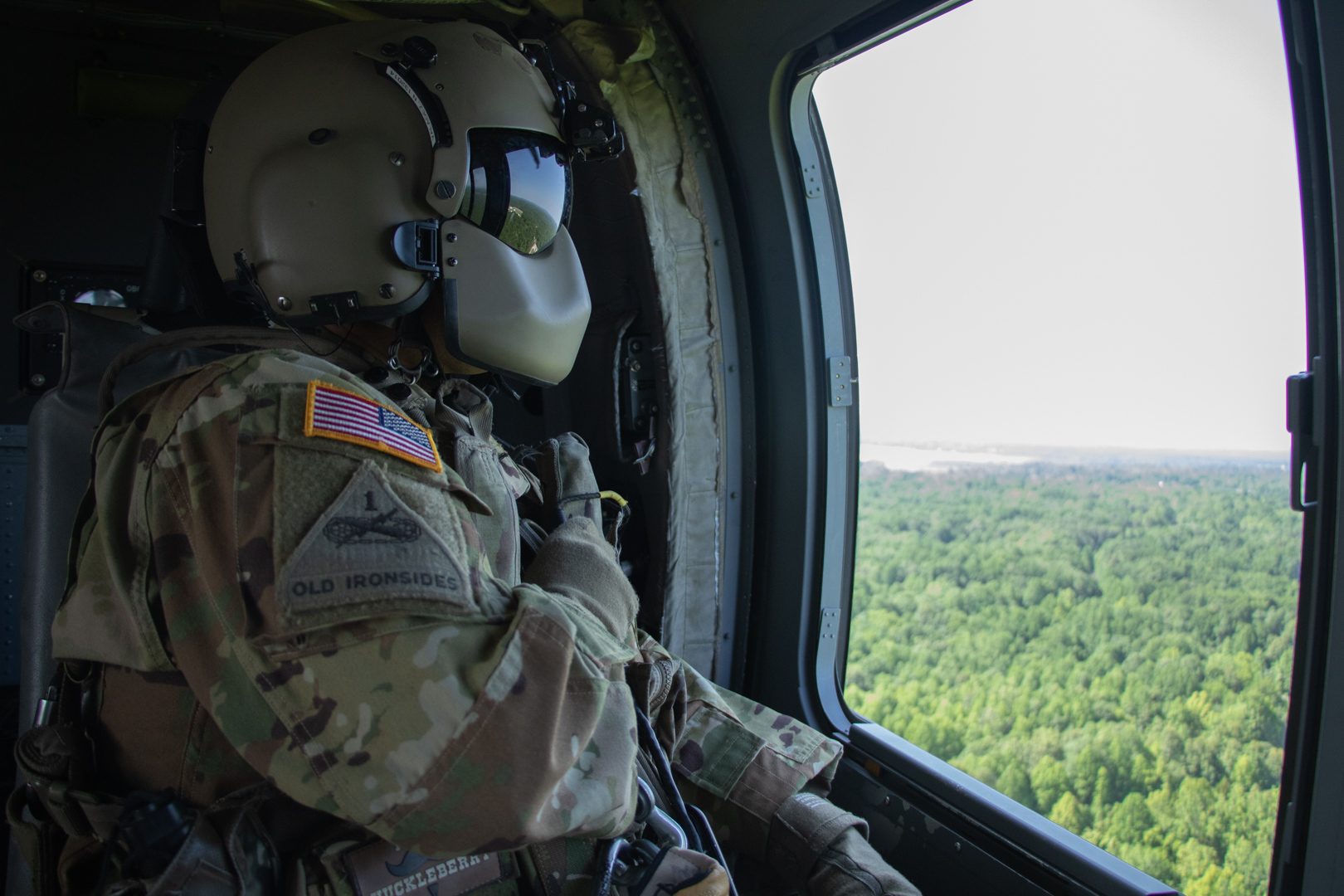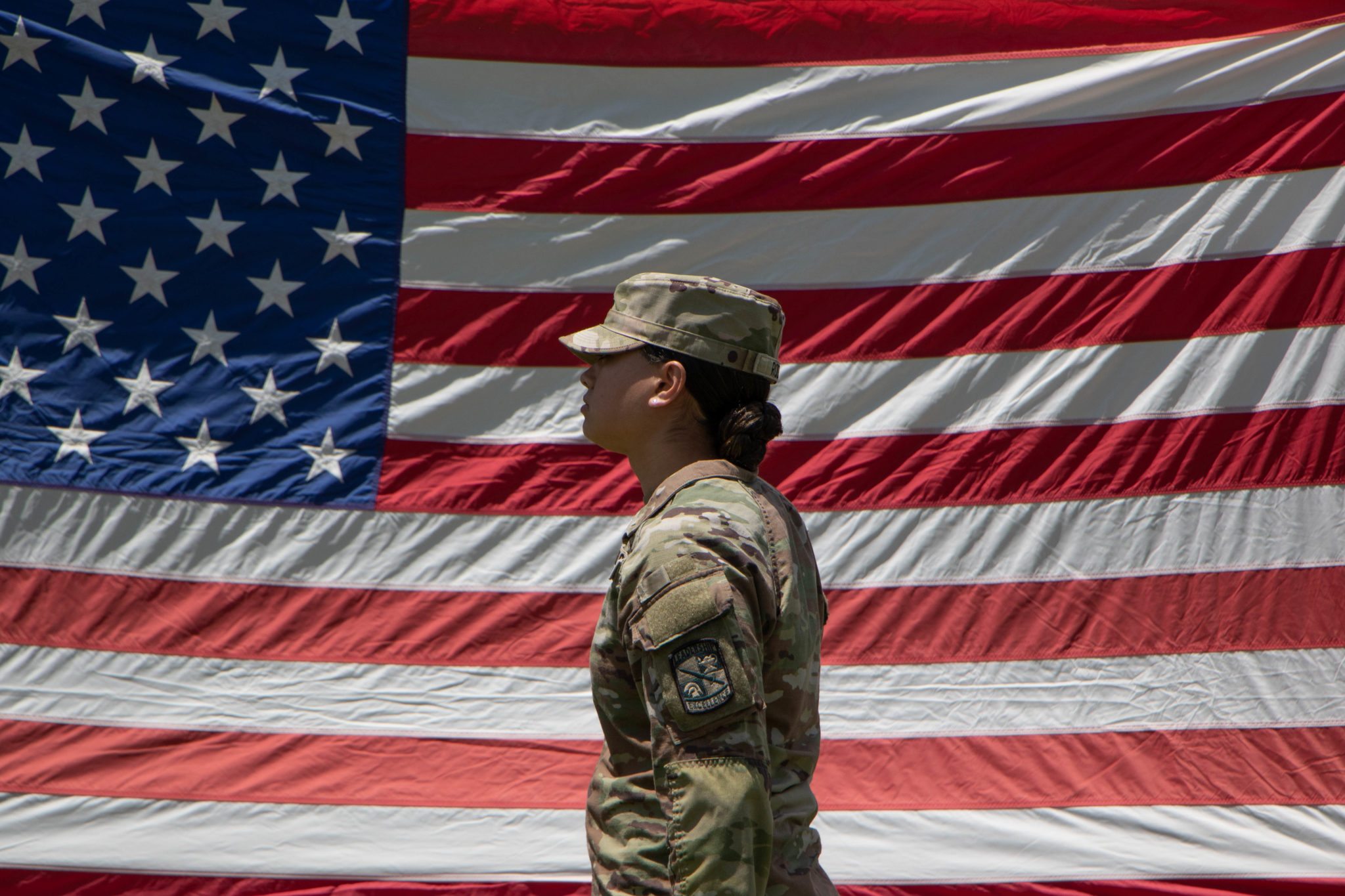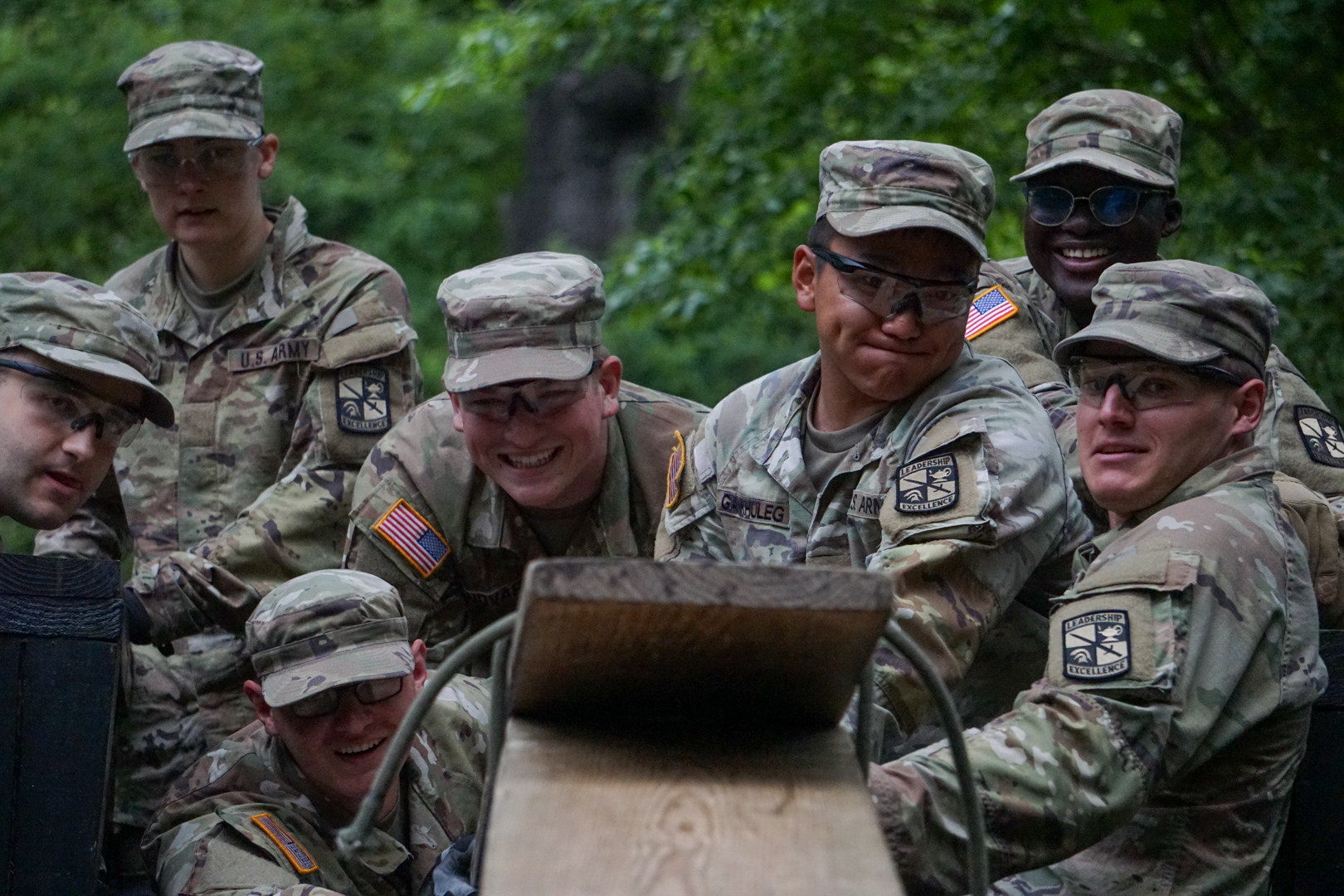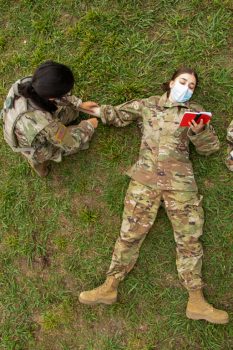
Two soldiers are out on patrol in a combat zone walking side by side. A burst of enemy fire erupts and one falls to the ground limp. Yelling to their fallen partner, the other soldier gets no response. With no medics in sight, the soldier overcomes their nerves and gets to work. Thanks to their knowledge and training, their battle-buddy remains stable enough to make it to the nearest medical tent and makes a full recovery.
Although no Cadets were actually put in harm’s way, this was the pretend scenario of 6th Regiment Advanced Camp’s Tactical Combat Casualty Care (TC3), part of warrior skills training.
Cadre stress that this training is vital for all future leaders to learn. In order for Cadets to properly serve each other in the field, they needed to drill these techniques and gain confidence.
“Teaching the Cadets skills like this is really important, especially now, because it’s getting that comfortability and confidence in the basics, so when they go into the further levels of training they’re more comfortable with it,” said Sgt. William Raymond Harris.
As a veteran of Afghanistan, Harris is well versed in the need for these skills.
“Honestly no one is prepared for that [a real-world situation] until they go through it, but what we’re doing is getting them to a point where they’re not thinking about the steps, and after training on it so many times it becomes muscle memory,” he said. “Then there’s less chance of them freezing in the moment.”
Cadets practice on a manikin and each other to quickly assess an incapacitated soldier in a field environment, looking for bleeding, broken bones, collapsed lungs and more, and learning how to treat them with tourniquets, bandages, and nasopharyngeal airways, or NPAs.
For some Cadets like Aleena Roland, who is a nursing student at Niagara University, this training was familiar, but still new. She felt it was valuable for her to learn the process of providing care in the dirt when bullets are flying overhead.
“It’s different from nursing because we don’t have the supplies we would normally have in a hospital, so it’s almost getting a new perspective. It’s always interesting to learn more about the medical field. To have more skills and abilities. It broadens your knowledge so that’s great,” said Roland. “I think field care and dealing with the trauma with a little amount of equipment and time would be good for any medical student or nursing student to do.”
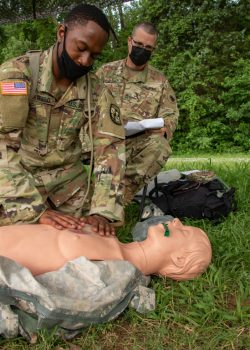
Roland explained that her prior medical training was helpful, and that she even helped coach other Cadets on some technique, however the emergency procedures of this high stress environment were new to everyone.
There was a bit of nervousness in the air as Cadets waited their turn to begin assessments, but all approached with their knowledge leading the way.
Cadet Roland certainly knew what good medical practice looked like, and she proudly attested to the confidence gained by her and her fellow Cadets. With their battle-buddies by their side, these Cadets will be ready for anything.

